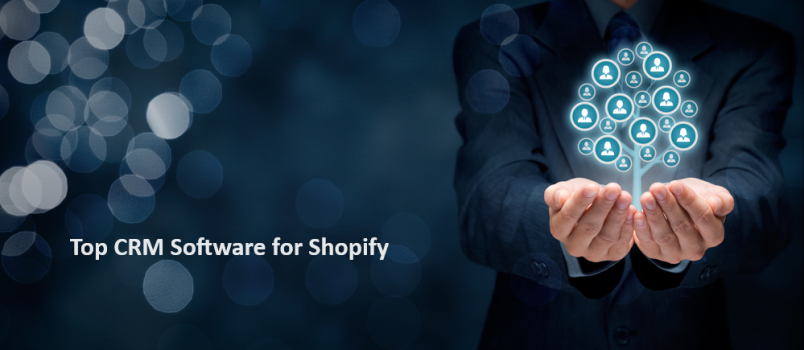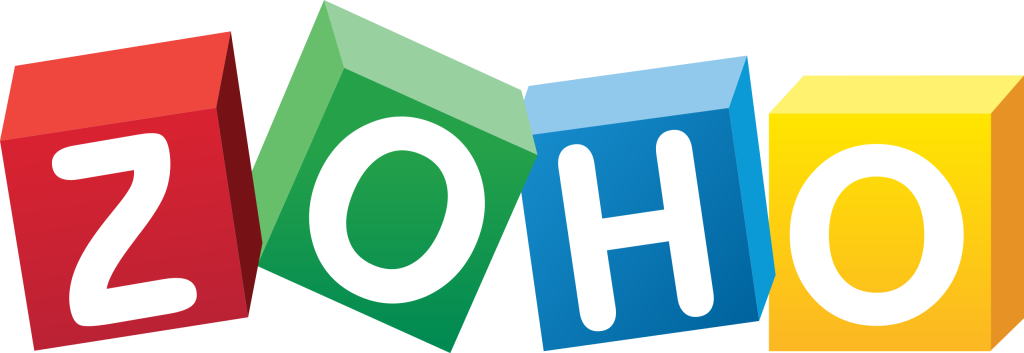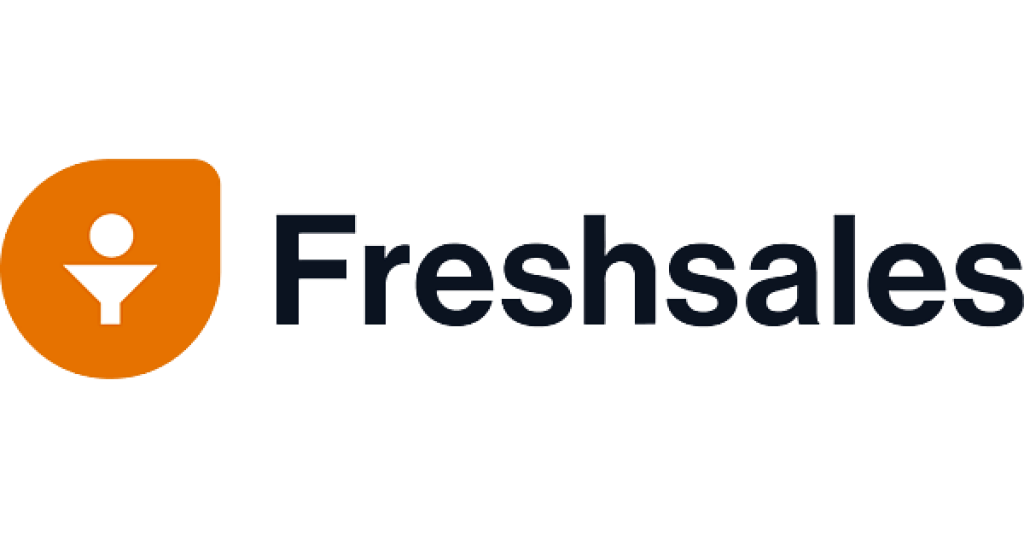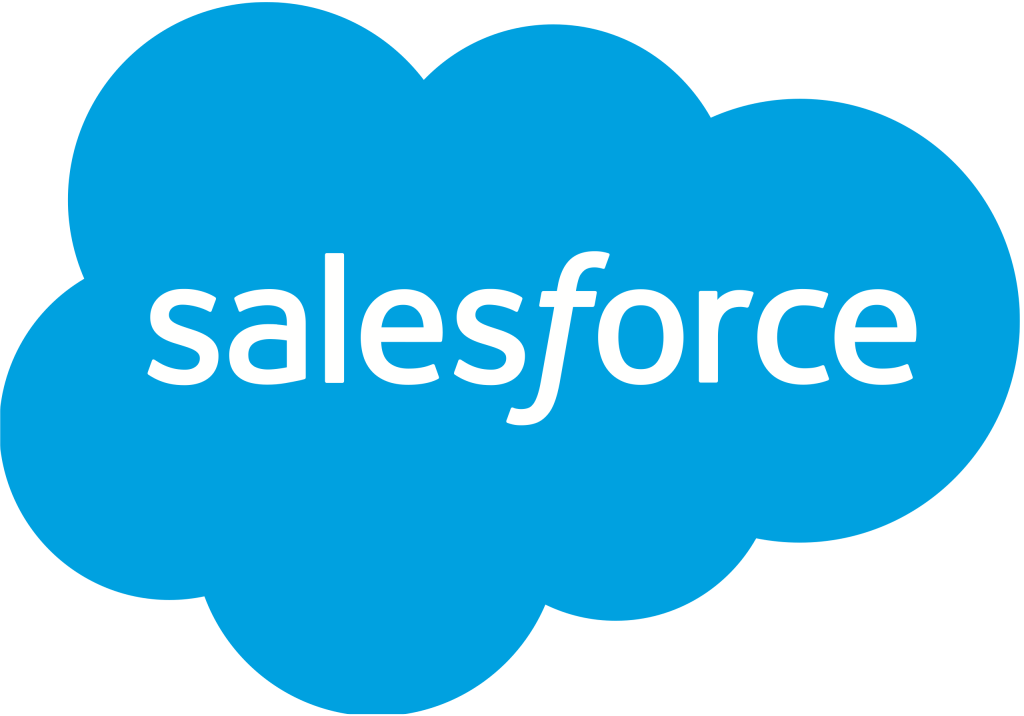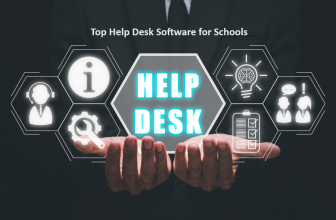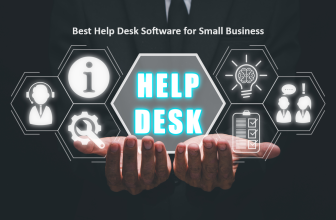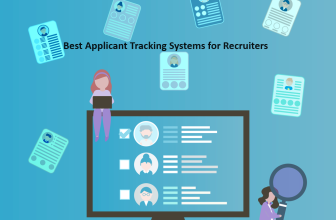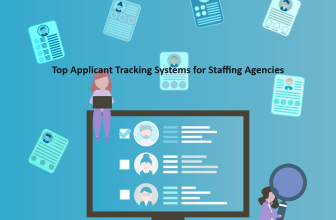For businesses operating on Shopify, integrating a CRM solution provides a centralized platform to manage customer interactions, understand purchasing behavior, and foster customer loyalty. The right Shopify CRM software streamlines these processes by synthesizing customer data and interactions, enabling businesses to engage with their audience more personally and efficiently.
A CRM solution that aligns with Shopify not only serves as a repository for customer information but empowers businesses to create meaningful connections with their audience. The objective is to transform data into actionable insights that result in improved customer satisfaction and increased sales. With various CRM software options available, Shopify merchants are tasked with choosing a system that best fits their operational demands and supports their long-term growth strategies.
What we cover
What Are the Benefits of Using CRM Software for Shopify
CRM software for Shopify can greatly enhance a store’s operations, significantly impacting sales, marketing, and customer service. Here are five top benefits of using CRM software with Shopify:
- Enhanced Customer Segmentation: CRMs allow store owners to organize and analyze customer data effectively. By utilizing purchase history and customer profiles, businesses can segment their audience into distinct groups, which is critical for targeted marketing strategies and marketing automation.
- Improved Marketing Automation: Implementing CRM systems helps in automating marketing efforts, such as email campaigns, based on customer behavior and preferences. This not only aids in personalization but also increases the likelihood of converting one-time shoppers into repeat customers.
- Increased Sales and Productivity: CRM tools provide valuable insights into customer data and purchase behaviors. These insights lead to more strategic sales tactics and promotional activities, which in turn, improve productivity.
- Streamlined Customer Service and Retention: A CRM application is instrumental in tracking interactions with customers, offering opportunities for providing personalized and efficient customer service. This often results in higher customer retention rates, as well-attended customers are more likely to return.
- Operational Efficiency: CRM integration reduces the administrative workload by automating aspects of the customer relationship management. This increase in efficiency allows businesses to refocus resources on other crucial areas, like developing the customer experience and advancing core business objectives.
General Pricing of CRM Software for Shopify
Choosing a CRM for your Shopify store involves understanding the various price points available in the market. Prices range from free plans designed for basic needs to premium monthly subscriptions that offer advanced functionalities. Budget constraints and the scale of operations heavily influence the decision.
- Free Plans: Some CRMs offer free plans with core functions. These plans are suitable for businesses just starting or those with minimal customer relationship management needs.
- Trial Periods: Many providers offer a free trial, usually ranging from 14 to 30 days. This period allows users to evaluate the software’s features before committing financially.
- Entry-Level Subscriptions: Start at approximately $5 to $50 per month for small businesses. These plans often include basic CRM features and integration with Shopify.
- Mid-Range Options: With prices typically set between $50 and $100 per month, these plans target growing businesses and include more robust features like advanced reporting and improved customer service analytics.
- Premium Services: For enterprises requiring comprehensive CRM solutions, prices exceed $100 per month. High-tier plans boast advanced automation, detailed analytics, and significant integration capabilities.
Here’s a breakdown:
| CRM Price Category | Price Range | Features and Availability |
|---|---|---|
| Free Plan | $0 | Basic features, Limited contacts |
| Entry-Level | $5 – $50 per month | Core features, Basic support |
| Mid-Range | $50 – $100 per month | Advanced features, Better support |
| Premium | $100+ per month | All features, Priority support |
Features to Look for in CRM Software for Shopify
When selecting a CRM for a Shopify storefront, there are key features that one should prioritize to ensure a streamlined workflow and enhanced customer relationship management.
- Integration with Shopify: The CRM software should offer seamless integration capabilities, allowing for effortless synchronization of data between the Shopify store and the CRM system. This includes sharing customer data, order history, and transaction details.
- Email Marketing Tools: It is beneficial if the CRM includes email marketing features, enabling businesses to craft targeted campaigns directly from their CRM. Automation of email responses based on customer actions can significantly improve marketing efficiency.
- Pipeline Management: An effective CRM should allow for robust pipeline management to track the customer journey from lead acquisition to the final sale. Sales tools such as visual sales pipelines with drag-and-drop interfaces aid in managing leads and deals effectively.
- Automation and Workflow: Reliable workflow automation is essential for reducing administrative tasks. The CRM software should offer automation features for tasks, alerts, and follow-ups to enhance operational efficiency. Task management capabilities help ensure no customer interaction or sales opportunity is missed.
- Reporting and Analytics: Comprehensive reporting and analytics features are critical for tracking the performance of sales campaigns and customer engagement. Sales reports, sales forecasting, and contact management facilitate informed decision-making based on real-time data.
Top Recommendations
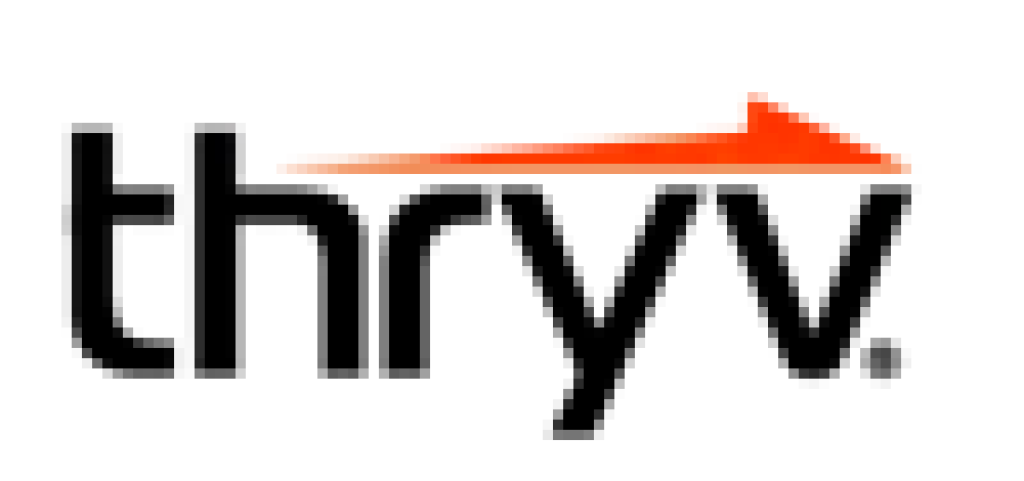
Thryv is an all-in-one management software designed to help small business owners streamline their operations
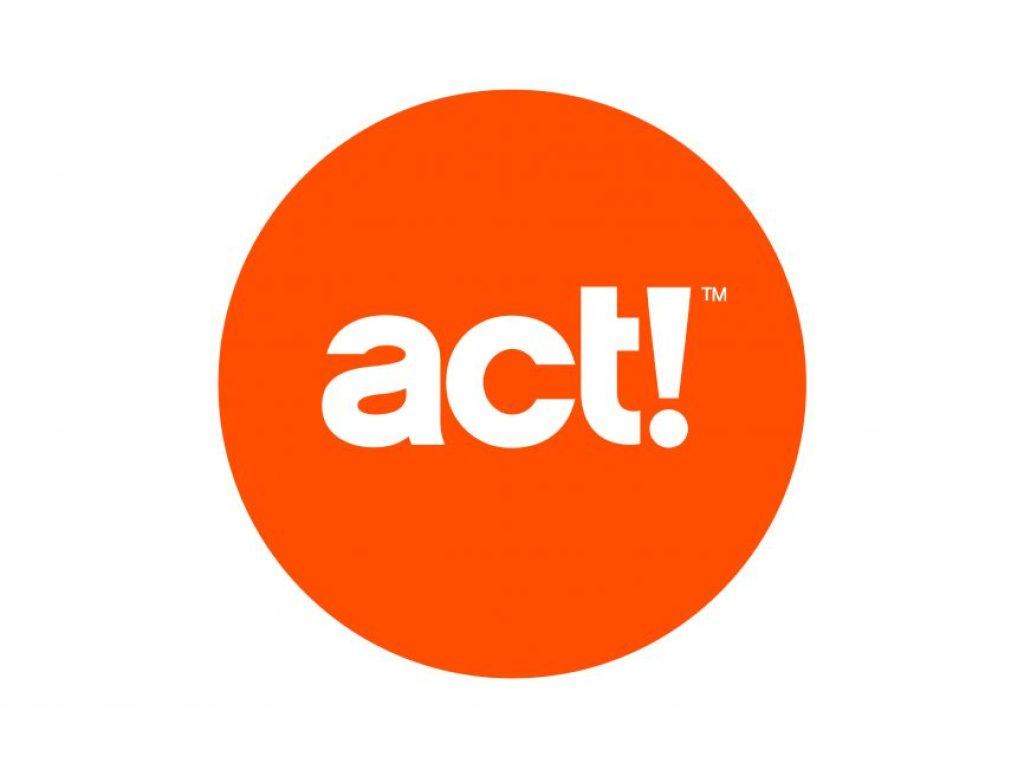
Act! is a popular CRM software designed to help small & medium-sized businesses manage contacts and marketing efforts effectively.
Best CRM Software for Shopify
Choosing the right CRM software for your Shopify store is essential for managing customer data, streamlining interactions, and driving revenue. With various options available, each boasting unique features and integrations, businesses can find solutions tailored to their specific needs, whether they are small startups or established e-commerce enterprises.
Best CRM Software for Shopify (At a Glance)
| Software | Focus Area | Key Features | Best For |
|---|---|---|---|
| Thryv | Small Business Management | Customer data management, appointments, social media | Small businesses looking for an all-in-one solution |
| HubSpot CRM | Inbound Marketing & Sales | Lead generation, marketing automation, analytics | Businesses focusing on inbound marketing and sales |
| Salesforce | Customizable CRM | Highly customizable, extensive app marketplace | Businesses of all sizes needing a customizable CRM |
| Zoho CRM | SMBs & Enterprise Solutions | Multichannel CRM, artificial intelligence, automation | SMBs and larger enterprises looking for a scalable CRM |
| Freshsales | Sales & Marketing Automation | AI-powered insights, email tracking, lead scoring | Businesses seeking sales automation with AI insights |
| Pipedrive | Sales Pipeline Management | Visual sales pipelines, email integration, activity tracking | Sales teams needing effective pipeline management |
| Keap (formerly Infusionsoft) | Marketing Automation | All-in-one sales and marketing platform, campaign management | Small businesses needing marketing automation |
| Klaviyo | Email Marketing & Automation | Advanced segmentation, SMS marketing, analytics | E-commerce businesses focusing on email marketing |
| Omnisend | E-commerce Marketing Automation | Multichannel campaigns, segmentation, automation workflows | Online retailers using multichannel marketing |
| ActiveCampaign | Customer Experience Automation | Email marketing, automation, sales CRM | Businesses wanting to automate customer experiences |
| Streak CRM for Gmail | Email-based CRM | CRM functions within Gmail, email tracking, pipeline management | Users looking for a CRM within Gmail |
| Capsule CRM | Simplicity & Usability | Contact management, sales pipeline, task management | Small businesses valuing simplicity and usability |
| Agile CRM | Small to Mid-sized Businesses | Contact and project management, marketing automation | SMBs looking for an affordable, versatile CRM |
| Copper | Integration with Google Workspace | CRM for Google Workspace users, activity tracking, project tracking | Teams using Google Workspace extensively |
| Zendesk Sell | Sales Productivity & Engagement | Simplified sales process, email automation, reporting | Sales teams looking for productivity and engagement tools |
1. Thryv
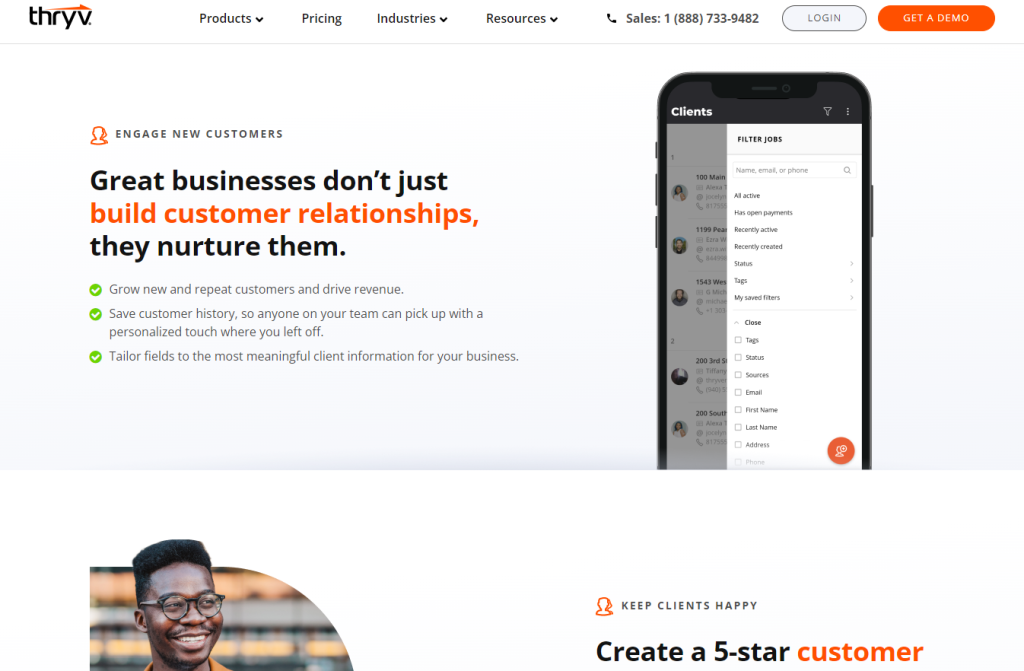
Key Features:
- Robust customer data management
- Integrated marketing tools
- Mobile app for on-the-go access
Rating: 4 out of 5
Pros:
- Centralized customer support
- Seamless e-commerce integration
- User-friendly mobile experience
Cons:
- Limited advanced analytics
- Fewer customization options
- Predominantly fits small businesses
Pricing: Contact for a quote
Thryv is an all-in-one management software designed specifically for small businesses.
It centralizes customer data management, appointments, social media interactions, and more, making it easier for businesses to manage their operations and customer relationships in one place.
The platform’s standout features include online appointment scheduling, payment processing, and customizable marketing campaigns, which empower small businesses to compete with larger companies.
Its integrated approach and user-friendly interface make it an excellent choice for small business owners looking for a comprehensive solution to streamline their operations and enhance customer engagement.
Verdict: Thryv is notable for its comprehensive customer support and ease of use, making it a good fit for small e-commerce businesses.
2. HubSpot CRM
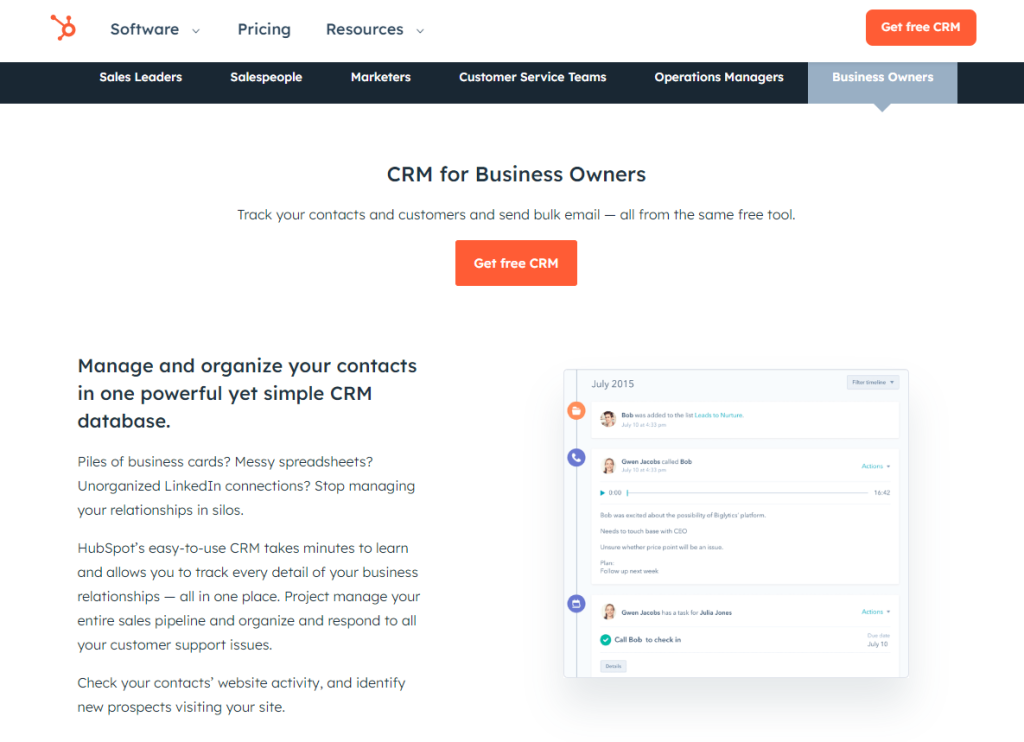
Key Features:
- Advanced analytics and reporting
- Email and sales automation
- Customizable marketing campaigns
Rating: 4.5 out of 5
Pros:
- Free CRM integration with Shopify
- Extensive email tracking capabilities
- Robust marketing automation
Cons:
- Can be costly as needs scale
- Complex for beginners
- Additional costs for premium features
Pricing: Starts at $50/month
HubSpot CRM is renowned for its powerful inbound marketing and sales capabilities. It offers a wide range of tools for lead generation, marketing automation, customer service, and analytics, all within a free-to-start platform that grows with your business.
The CRM’s seamless integration with the HubSpot marketing, sales, and service hubs allows businesses to deliver a cohesive customer experience.
Its ease of use, combined with deep insights into customer interactions, makes HubSpot CRM a favorite among businesses focused on growing their customer base through inbound marketing strategies.
Verdict: HubSpot CRM excels in automation and integration, streamlining sales and marketing processes for e-commerce platforms.
3. Salesforce
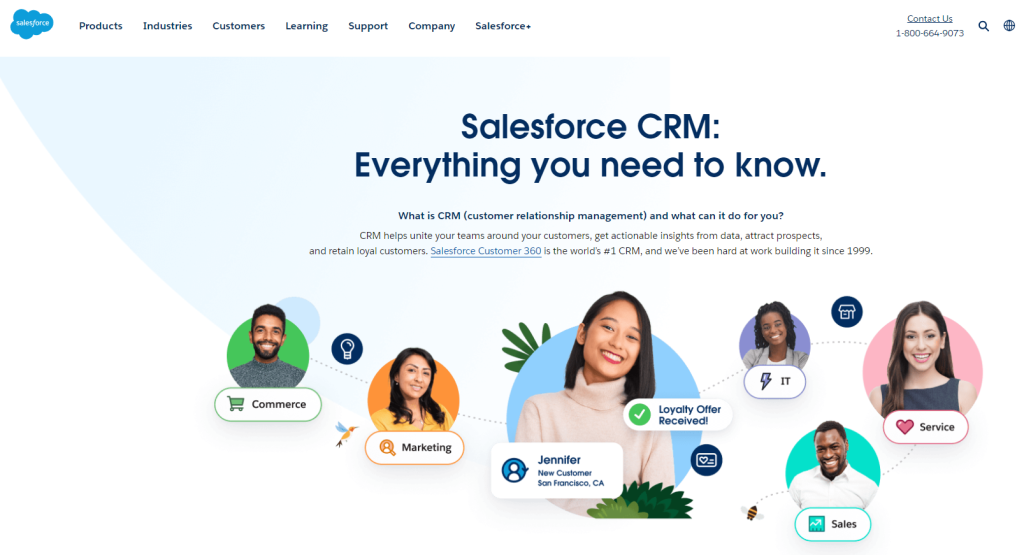
Key Features:
- Comprehensive lead management
- Customized sales pipeline
- Phone and social media integration
Rating: 4.2 out of 5
Pros:
- Extensive customization opportunities
- Powerful sales automation tools
- Wide array of third-party integrations
Cons:
- Steeper learning curve
- Higher cost on advanced features
- Setup requires technical expertise
Pricing: Starts at $25/user/month
Salesforce is arguably the most customizable CRM on the market, catering to businesses of all sizes across various industries.
Its extensive app marketplace, Salesforce AppExchange, allows users to add functionalities tailored to their specific needs.
Salesforce excels in offering a 360-degree view of the customer, with capabilities ranging from sales and customer service to marketing automation and analytics.
Its cloud-based nature ensures scalability and accessibility, making it a top choice for businesses seeking a robust, enterprise-level CRM solution.
Verdict: Salesforce stands out for its rich customization and robust sales automation, catering to businesses with complex sales processes.
4. Zoho CRM
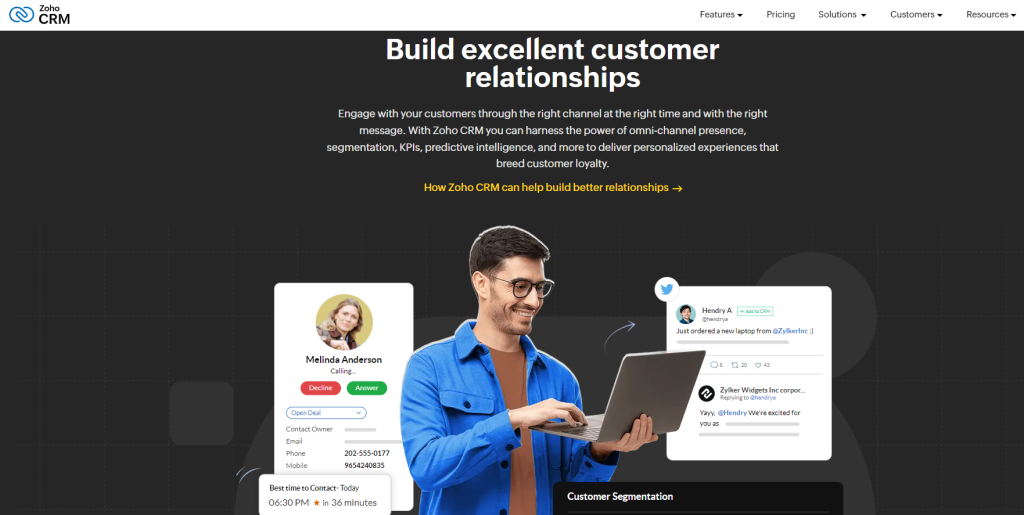
Key Features:
- Multichannel lead management
- Sales leads tracking
- E-commerce analytics
Rating: 4 out of 5
Pros:
- Affordable for small businesses
- Mobile app for sales access
- Integration with social media platforms
Cons:
- Limited advanced features on basic plans
- Can get expensive with add-ons
- Less intuitive interface
Pricing: Free plan available, paid plans start at $14/user/month
Zoho CRM is a versatile tool designed for SMBs and enterprise solutions alike.
It stands out for its affordability and the breadth of features, including multichannel customer engagement, artificial intelligence-powered sales insights, and automation capabilities.
Zoho CRM’s ability to integrate with over 40 other Zoho applications and numerous third-party apps makes it a flexible option for businesses looking to customize their CRM experience.
It’s particularly suited for companies seeking a scalable CRM that can grow with their business.
Verdict: Zoho CRM is recognized for its affordability and strong lead management capabilities, making it a popular choice for startups.
5. Freshsales
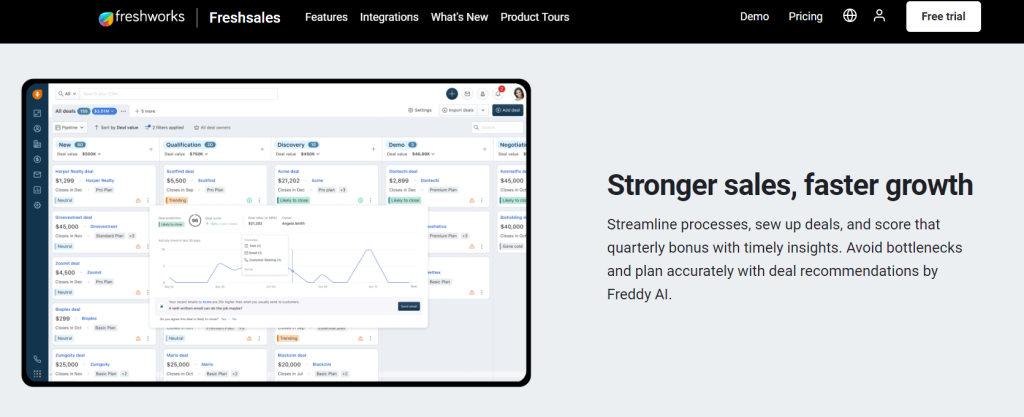
Key Features:
- E-commerce specific CRM features
- Email campaigns and customer segmentation
- Visual sales pipeline
Rating: 4.1 out of 5
Pros:
- User-friendly interface
- Strong email marketing integration
- Tailored for e-commerce businesses
Cons:
- Could be too simplistic for larger enterprises
- Limited customization
- Additional costs for premium support
Pricing: Starts at $15/user/month
Freshsales, by Freshworks, offers a CRM that’s focused on leveraging AI to provide sales and marketing automation features.
Its standout capabilities include AI-powered insights for lead scoring, email tracking, and automated workflows to streamline the sales process.
Freshsales’ intuitive interface and comprehensive mobile app make it accessible for sales teams on the go, while its scalability makes it suitable for businesses of all sizes.
Companies looking to enhance their sales automation with intelligent insights will find Freshsales to be an excellent choice.
Verdict: Freshsales is well-suited for e-commerce businesses looking for straightforward CRM solutions with effective email campaigns.
6. Pipedrive
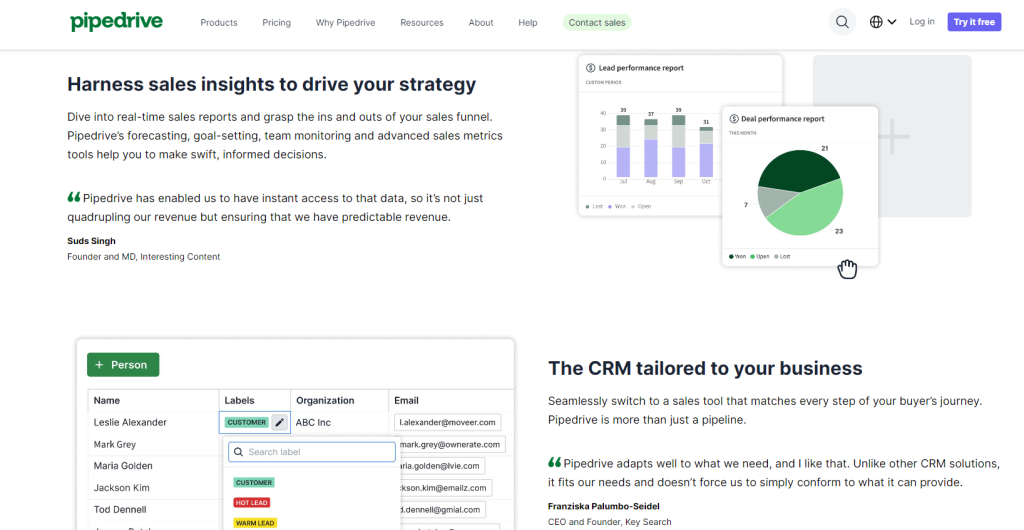
Key Features:
- Visual deal management
- Customizable sales pipeline
- Easy-to-set-up marketing campaigns
Rating: 4.3 out of 5
Pros:
- Intuitive interface
- Focused on sales pipeline efficiency
- Extensive integration options
Cons:
- Limited capabilities for large teams
- Fewer direct e-commerce features
- Basic reporting on entry-level plans
Pricing: Starts at $12.50/user/month
Pipedrive is designed with a focus on sales pipeline management. Its visual sales pipeline interface is highly intuitive, allowing sales teams to track deals and manage their sales processes efficiently.
Features like email integration, activity reminders, and customizable pipelines help sales professionals focus on their most promising leads.
Pipedrive’s simplicity and effectiveness make it ideal for sales teams that need a straightforward yet powerful tool to boost their productivity and sales outcomes.
Verdict: Pipedrive offers a clear and manageable sales pipeline for businesses wanting to optimize their sales processes.
7. Keap (formerly Infusionsoft)
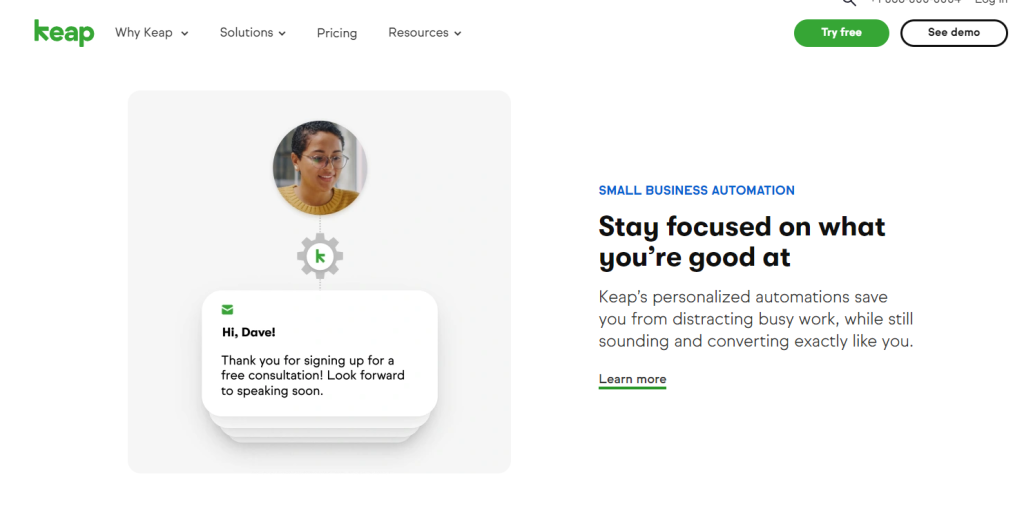
Key Features:
- Advanced campaign builder
- Email automation with targeted messaging
- CRM and sales automation
Rating: 4 out of 5
Pros:
- Strong automated marketing tools
- Integrated e-commerce functionalities
- Customizable for various business processes
Cons:
- More expensive for small businesses
- Complex interface requiring a learning curve
- Setup may be involved and time-consuming
Pricing: Starts at $79/month
Keap is best known for its comprehensive sales and marketing platform, which combines CRM, email marketing, and e-commerce functionalities.
It’s designed to help small businesses automate their sales and marketing processes, with features like campaign management, lead capture, and payment processing.
Keap’s all-in-one approach makes it an attractive option for small businesses looking to streamline their operations and grow their customer base through targeted marketing campaigns.
Verdict: Keap is ideal for businesses that require a high level of marketing and sales automation combined with CRM capabilities.
8. Klaviyo
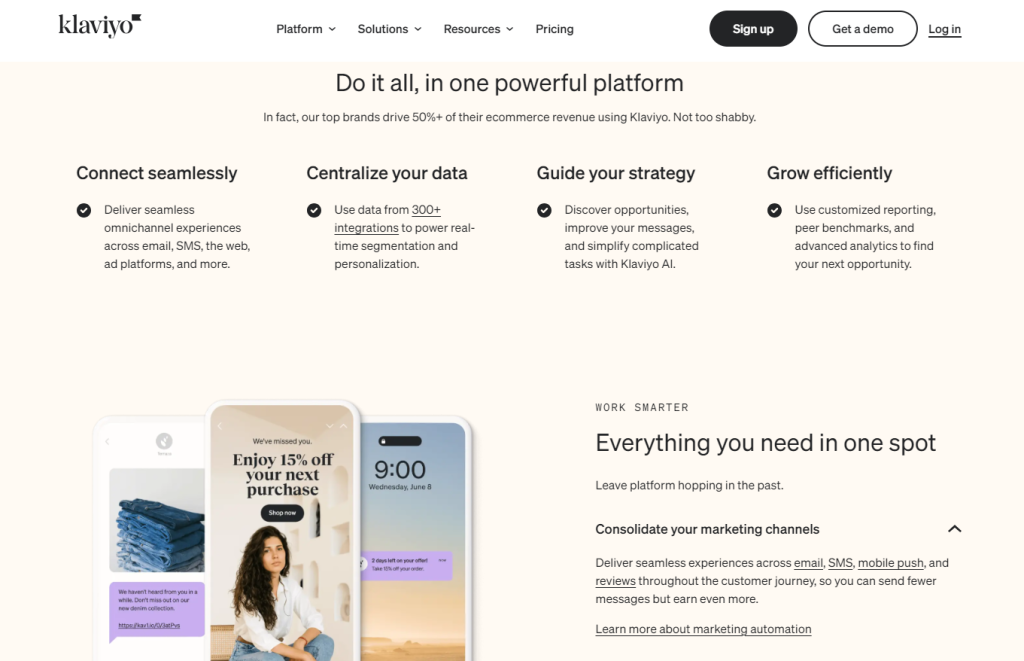
Key Features:
- Email campaigns and segmentation
- E-commerce analytics
- Advanced customer targeting
Rating: 4.4 out of 5
Pros:
- Deep integration with Shopify
- Powerful segmentation for personalized campaigns
- Real-time e-commerce analytics
Cons:
- Pricing scales with the contact list
- Complex for beginners
- Primarily focuses on email marketing
Pricing: Free for up to 250 contacts; pricing scales with list size
Klaviyo is an email marketing platform with advanced CRM functionalities tailored for e-commerce businesses.
It excels in segmentation, personalized email campaigns, and analytics, allowing businesses to target their customers more effectively.
Klaviyo’s deep integration with e-commerce platforms like Shopify enables real-time insights into customer behavior, making it possible to create highly targeted marketing strategies.
Verdict: Klaviyo is a top choice for Shopify stores that prioritize email marketing and customer segmentation for their e-commerce strategies.
9. Omnisend
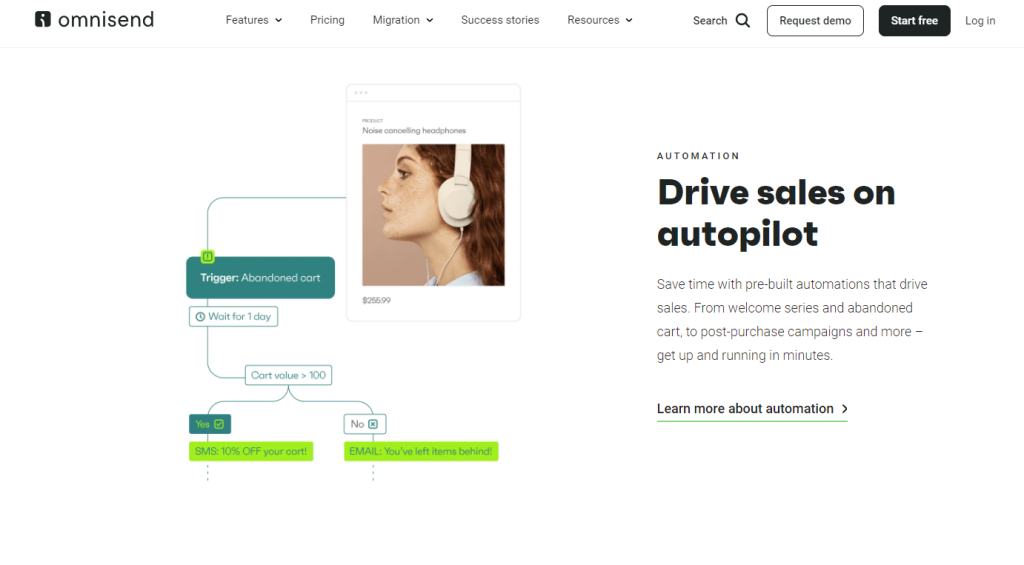
Key Features:
- Omnichannel marketing and automation
- Campaign automation
- Exceptional customer messaging tools
Rating: 4.2 out of 5
Pros:
- Easy to use campaign builder
- Supports multiple channels including SMS
- Focuses on e-commerce automation
Cons:
- Limited functions on the free plan
- Might require more integrations for full potential
- E-commerce centric, may not suit all business models
Pricing: Free plan available; paid plans start at $16/month
Omnisend is an e-commerce marketing automation platform that offers comprehensive CRM capabilities.
It specializes in creating personalized customer experiences across multiple channels, including email, SMS, social media, and web push notifications.
With features like automation workflows, segmentation, and robust analytics, Omnisend helps online retailers increase their sales by delivering targeted messages at the right time.
Its ease of use and integration with major e-commerce platforms make it a go-to solution for online merchants aiming to automate their marketing efforts.
Verdict: Omnisend is a versatile tool for store owners who want to automate their marketing across various channels efficiently.
10. ActiveCampaign
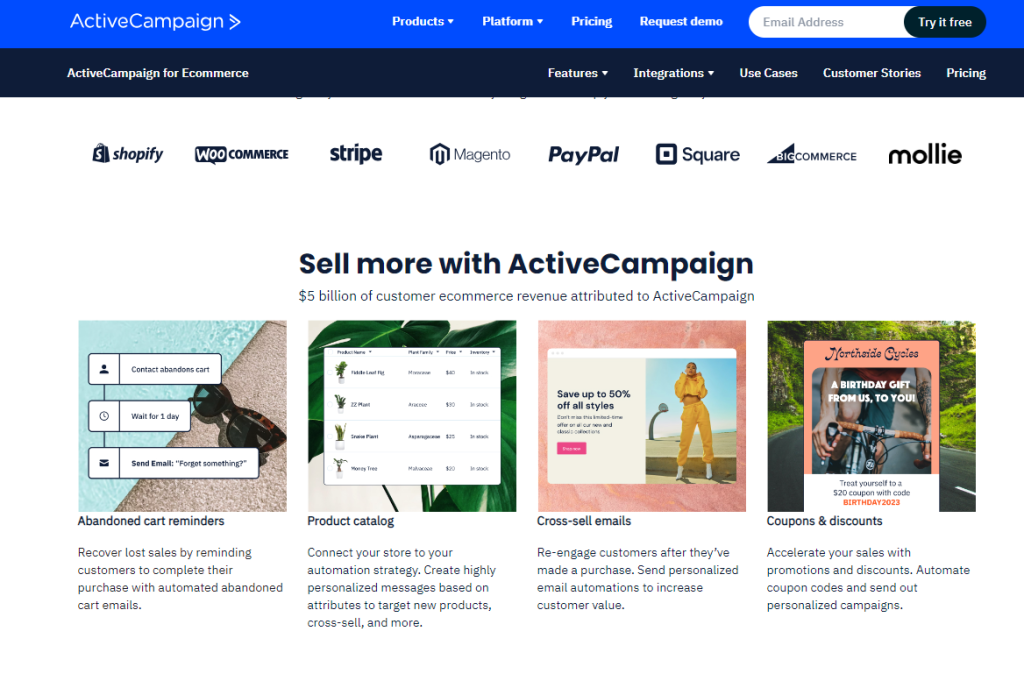
Key Features:
- Customer experience automation
- Email marketing with machine learning
- CRM for tracking customer interactions
Rating: 4.5 out of 5
Pros:
- Powerful marketing automation
- Dynamic email content capabilities
- Detailed ecommerce analytics and insights
Cons:
- May be overwhelming for beginners
- Higher tier plans required for advanced features
- Complex setup and campaign creation
Pricing: Starts at $9/user/month
ActiveCampaign combines email marketing, automation, sales automation, and a CRM into a single platform. It’s designed to help businesses automate their customer experiences, with a focus on creating personalized customer journeys.
ActiveCampaign’s rich feature set includes site tracking, event tracking, and advanced segmentation, making it possible to tailor marketing efforts to individual customer behaviors.
Businesses seeking to leverage automation to enhance their customer relationships will benefit greatly from ActiveCampaign’s capabilities.
Verdict: ActiveCampaign shines with its deep e-commerce integration and advanced marketing automation features that cater to the evolving needs of online retailers.
Check out ActiveCampaign here!
11. Streak CRM for Gmail
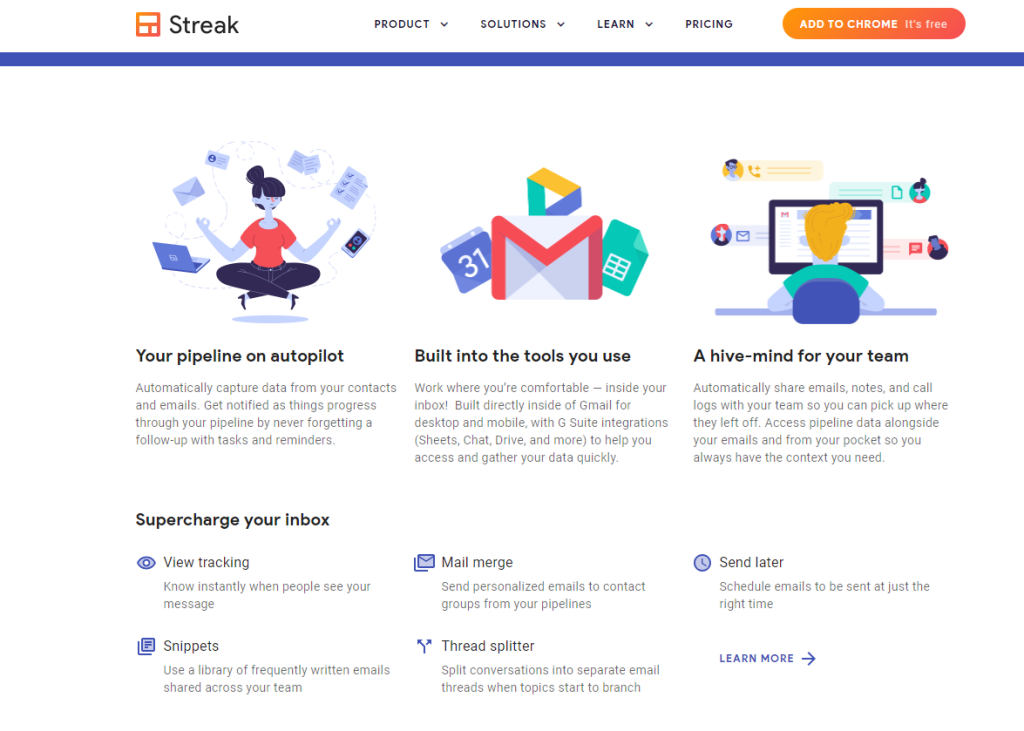
Key Features:
- Gmail integration for email management
- Task organization within the inbox
- Pipeline visibility in Gmail
Rating: 4 out of 5
Pros:
- Direct integration with Gmail
- Ease of use within familiar interface
- Handy for managing email-related tasks
Cons:
- Limited to email interactions
- Not a standalone CRM solution
- Basic features compared to full CRM systems
Pricing: Free basic plan; Pro plan starts at $49/user/month
Streak CRM transforms Gmail into a CRM, allowing users to manage their customer relationships directly within their inbox. It’s particularly useful for small businesses and freelancers who rely heavily on email communication.
Features like email tracking, pipeline management, and task reminders help users stay organized and focused on their sales and customer service processes.
For those looking for a simple, effective CRM solution that integrates seamlessly with Gmail, Streak is an excellent choice.
Verdict: Streak CRM is a simple and convenient solution for businesses that manage most of their customer interactions and sales processes directly within Gmail.
12. Capsule CRM
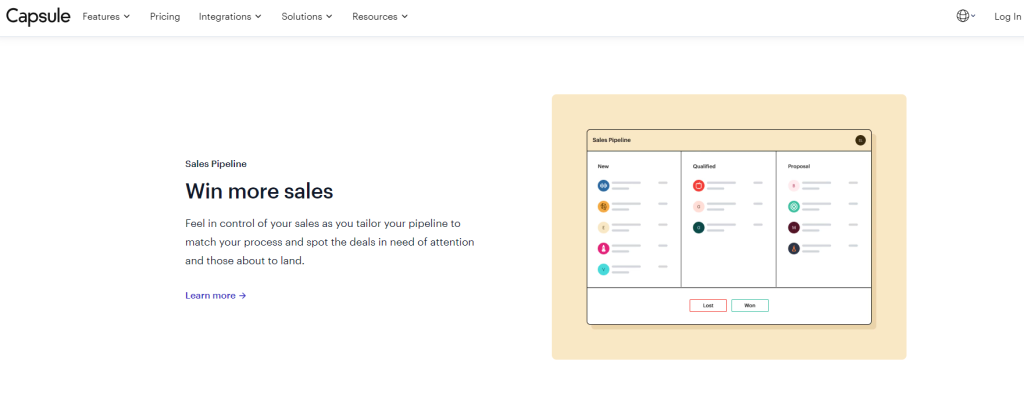
Key Features:
- Simplified contact management
- Customizable sales pipeline
- Easy task and lead tracking
Rating: 4 out of 5
Pros:
- Intuitive design and usability
- Affordable for small businesses
- Sufficient for basic CRM needs
Cons:
- More rudimentary analytics
- Less suitable for large companies
- Limited marketing automation tools
Pricing: Free limited plan; paid plans start at $18/user/month
Capsule CRM prioritizes simplicity and usability, making it an ideal choice for small businesses.
Its key features include contact management, sales pipeline visualization, and task management, all designed to help businesses streamline their sales and customer relationship processes.
Capsule’s ease of use, combined with its ability to integrate with a wide range of other business tools, makes it a popular choice for businesses seeking a straightforward CRM solution.
Verdict: Capsule CRM focuses on core CRM functionalities with a user-friendly experience, ideal for startups and small businesses.
13. Agile CRM
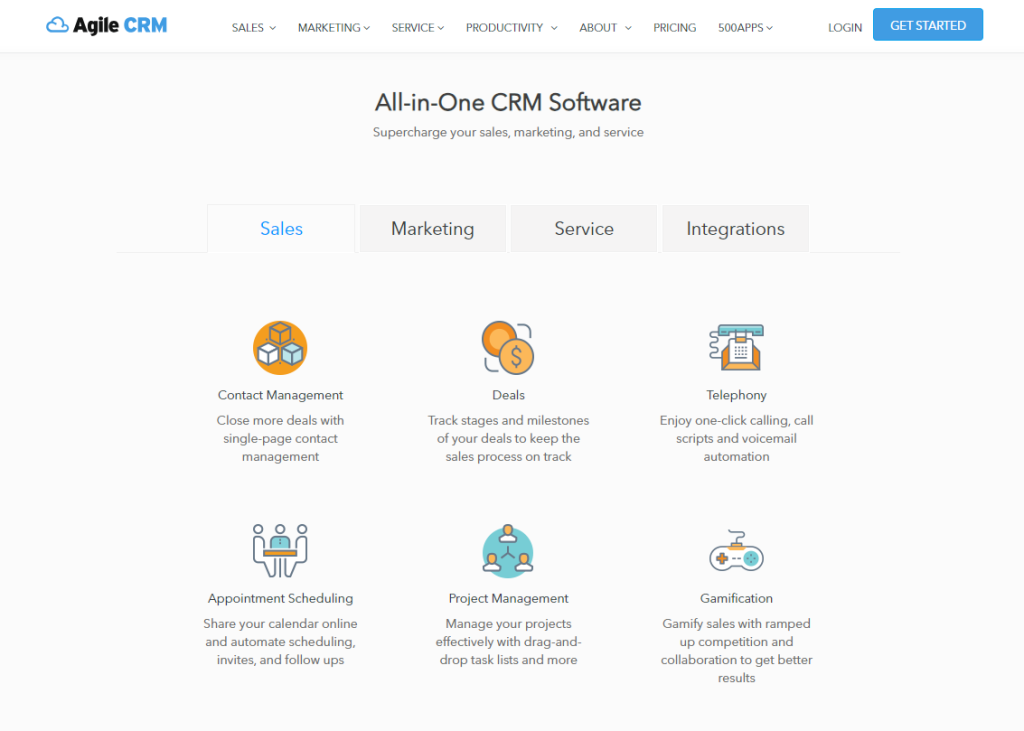
Key Features:
- Sales automation and lead management
- Marketing automation
- Gamification and Google apps integration
Rating: 3.8 out of 5
Pros:
- All-in-one CRM platform
- Affordably priced for small businesses
- Integrates well with other tools
Cons:
- Gamification may not suit all business types
- Interface could be more intuitive
- Features may not be as in-depth as larger CRMs
Pricing: Free plan for 10 users; paid plans start at $8.99/user/month
Agile CRM is designed for small to mid-sized businesses and offers a versatile CRM solution with sales, marketing, and service capabilities.
It stands out for its affordability and the range of features it offers, including contact and project management, marketing automation, and web analytics.
Agile CRM’s all-in-one approach and user-friendly interface make it an attractive option for SMBs looking for a comprehensive CRM to manage their customer relationships and automate their marketing efforts.
Verdict: Agile CRM suits businesses looking for an all-in-one solution that balances basic CRM features with sales and marketing automation.
14. Copper
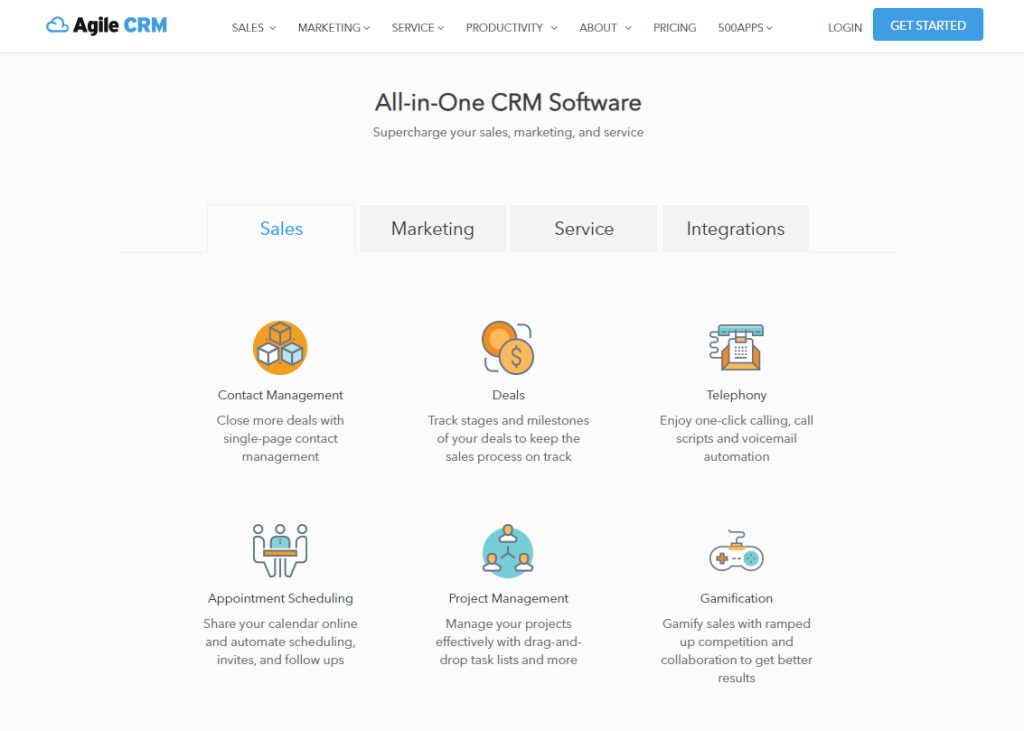
Key Features:
- Relationship tracking for all customer interactions
- Integration with Google Workspace
- Simple lead and project management
Rating: 4 out of 5
Pros:
- Native integration with Google Workspace
- Easy to use interface
- Effective for managing business relationships
Cons:
- Limited third-party integrations
- Not tailored for e-commerce
- Higher price point for advanced features
Pricing: Starts at $25/user/month
Copper CRM is uniquely designed for users of Google Workspace, offering deep integration with Google’s suite of productivity tools.
Its key features include activity and project tracking, lead and contact management, and workflow automation, all within a familiar interface for Google users.
Copper’s focus on simplicity and integration with Google Workspace makes it an excellent choice for teams that rely on Google tools for their daily operations and are looking for a CRM to enhance their productivity and customer management.
Verdict: Copper is an effective CRM tool for businesses that rely heavily on Google Workspace and require a straightforward approach to relationship management.
15. Zendesk Sell
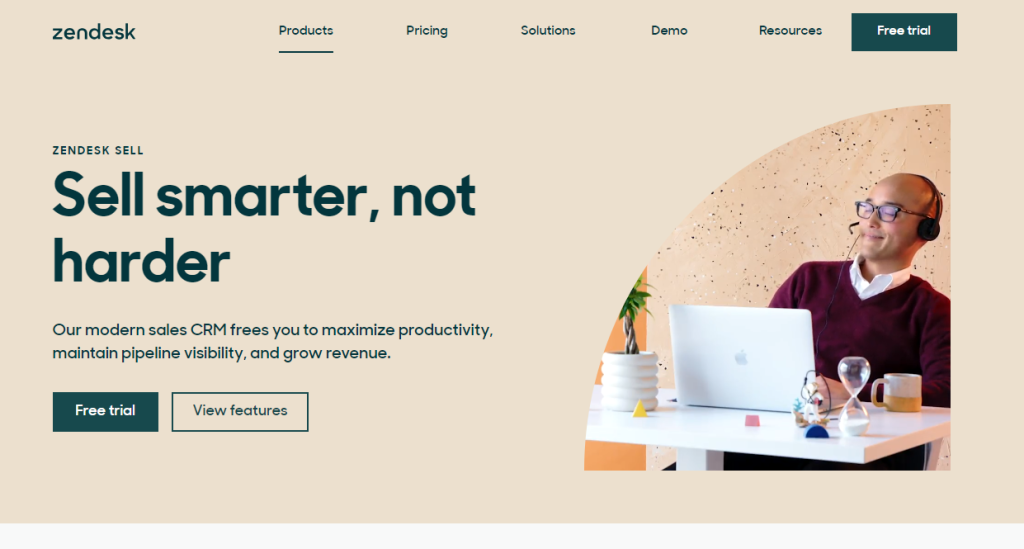
Key Features:
- Sales automation
- Lead tracking
- Integration with Zendesk support
Rating: 3.9 out of 5
Pros:
- Streamlines sales and support
- Intuitive sales workflow
- Easy-to-understand data analytics
Cons:
- Can become pricey with add-ons
- Limited customization
- Focus more on sales than marketing
Pricing: Starts at $19/user/month
Zendesk Sell focuses on sales productivity and engagement, offering tools to simplify the sales process, automate email communication, and provide detailed reporting.
Its intuitive interface and mobile access enable sales teams to manage their pipelines and customer interactions effectively, no matter where they are.
Zendesk Sell’s integration with the broader Zendesk customer service platform allows businesses to offer a seamless customer experience from initial contact through support.
Sales teams looking for a CRM that combines ease of use with powerful sales automation and reporting capabilities will find Zendesk Sell to be a compelling option.
Verdict: Zendesk Sell integrates CRM with customer support, creating a unified platform that is particularly useful for service-oriented businesses.
FAQs
Can I find a CRM that is well-suited for small to medium-sized Shopify businesses?
Yes, small to medium-sized Shopify businesses have a variety of CRM options tailored to their needs. CRMs like Sendinblue and Nimble offer affordable plans with feature sets that cater to smaller operations, providing them with tools to manage customer interactions effectively without a large investment.
Are there any highly recommended free CRM options that integrate with Shopify?
While most robust CRM systems require a subscription, there are free CRM options with basic features that integrate with Shopify. HubSpot CRM offers a free plan that includes essential CRM functionalities suitable for businesses just starting out or those with limited budgets.
How does using a CRM benefit an ecommerce business compared to using Shopify’s native tools?
Using a CRM provides advanced customer insights, fosters stronger customer relationships, and reduces administrative workload. These benefits are achieved through improved data tracking, personalized marketing strategies, and automation features that go beyond the capabilities of Shopify’s native tools.

